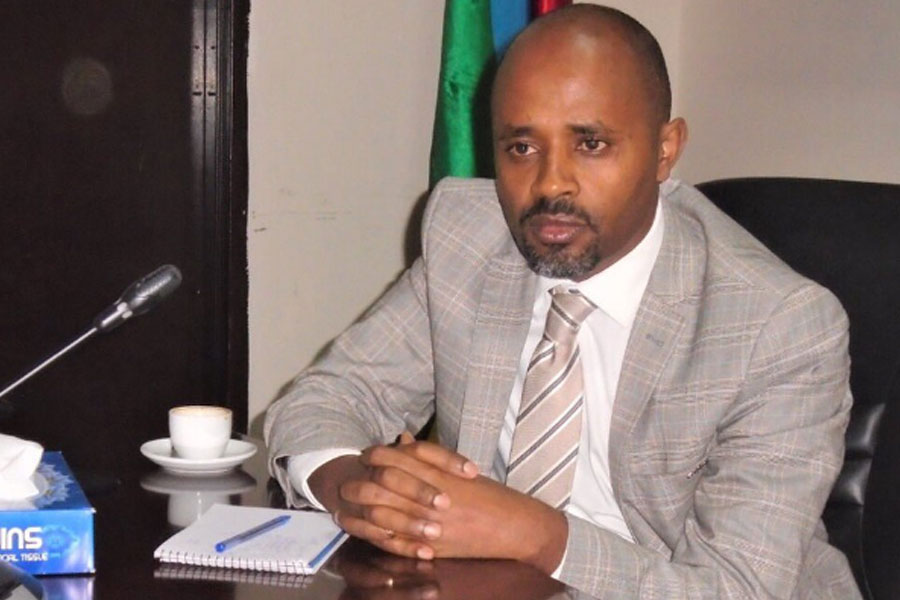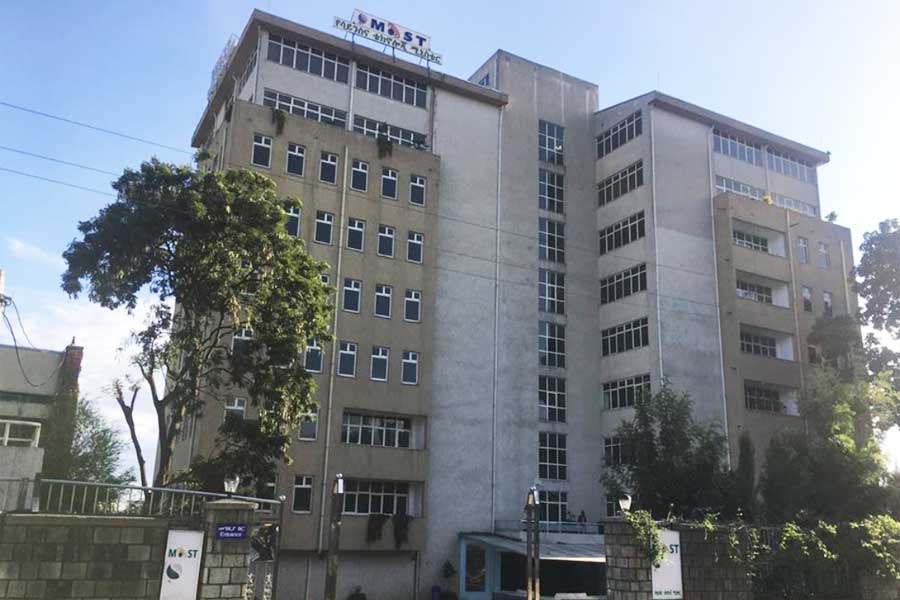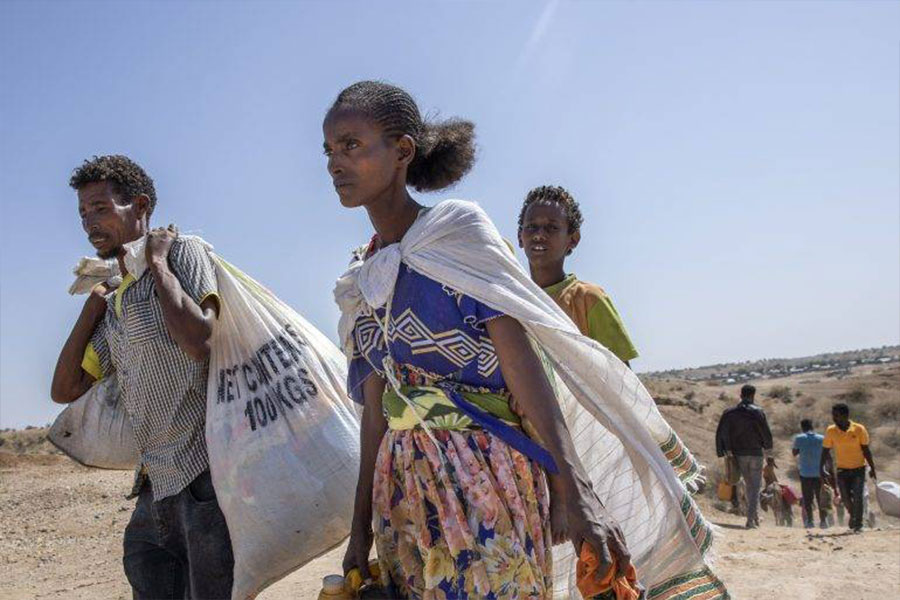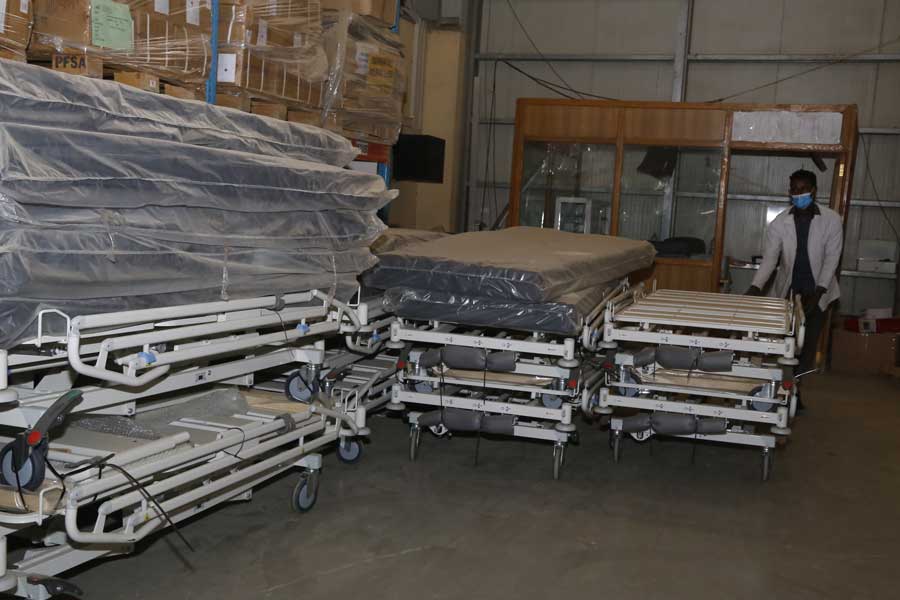
Fortune News | Dec 10,2018
A task force made up of six members from the Ministry of Trade & Industry has been set up to assess the cost of damage to businesses in Tigray Regional State due to the recent conflict. Established a week ago, the task force will also forward recommendations to reinvigorate factories and start production.
The team, which has already commenced operations, held a meeting with investors and business owners from Tigray Regional State last week to discuss the challenges the region's conflict has had on their operations. Enabling indefinite storage of goods without charge at customs, allowing up to three months of extensions for the renewal of work permits, facilitating increased forex allotment, and restoring disrupted infrastructure in the region were among the solutions tabled during the discussion.
The unrest in the Regional State, which began in early November following the armed conflict between the federal government and the region's former administration after the latter attacked the Northern Command of the Ethiopian National Defence Forces, had forced most businesses to close their doors. The conflict has caused the destruction of many properties and the displacement of workers, according to the investors.
The inability to process work permit renewals, the withholding of their goods at ports and customs centres due to road closures, and forex shortages were additional issues brought up by the investors.
The investors asserted that communications interruptions had left them largely in the dark about their businesses' status. After nearly a month of a blackout, communication lines were partially restored in parts of the Regional State.
There are around 93 large enterprises and around 7,000 small and medium enterprises that operate in the Regional State. These companies created employment opportunities for more than 270,000 foreign and local workers before the beginning of the conflict, according to data from the Ministry.
Sheba Leather Industry Plc, Semayata Dimensional Stones Factory, Ethio-Shewit General Trading Plc, and Savana Farming Plc were present at the discussion held at the Ministry's premises at the end of last week. The investors, who voiced their concerns over significant damage to their investments, said recovery without government assistance is near impossible and urged the government to act quickly.
"It's difficult to pay our employees, because activities have ceased, and we were unable to pick up our goods from Djibouti due to road closures," said Mikiyas Tadele, manager of Ethio-Shewit.
The company also faces additional problems due to their foreign employees from China. The employees, which had been evacuated from the region to the capital for their safety, stayed in rented housing. This has created another financial burden for the company, according to the manager.
Egzi Tsehaye, the founder of Zenit Barley, says that his company has suffered losses estimated to be 90 million Br. Despite this, he asserted that the company aims to rebuild entirely within four months.
Sheba Leather Industry has sustained 100 million Br in losses due to the robbery and fire at its plant, according to Zerabruk G. Michael, marketing & business development manager at Sheba.
The businesses need to prepare a plan in which they identify expected support from the government, according to Zerihun Abebe, textile & leather director at the Ministry.
Zerihun mentioned that the disruption greatly affected exports, the marketing of domestic industrial products, and employment opportunities and pledged that the task force would work to overcome these issues.
The government should showcase immediate solutions for investors, according to Ahmed Kellow (PhD), managing director of First Consult, who added that such damage could seriously impact the economy of the country.
"Media also has a big role to play in bringing attention to the problems faced by the community in the region," said Ahmed.
PUBLISHED ON
Dec 26,2020 [ VOL
21 , NO
1078]

Fortune News | Dec 10,2018

Radar | Apr 12,2020

Viewpoints | Mar 09,2024

Viewpoints | Feb 05,2022

Fortune News | Apr 17,2020

Fortune News | Oct 23,2021

Agenda | Mar 13,2021

Radar | May 21,2022

Fortune News | Jun 25,2022

Featured | Jul 10,2020

Dec 22 , 2024 . By TIZITA SHEWAFERAW
Charged with transforming colossal state-owned enterprises into modern and competitiv...

Aug 18 , 2024 . By AKSAH ITALO
Although predictable Yonas Zerihun's job in the ride-hailing service is not immune to...

Jul 28 , 2024 . By TIZITA SHEWAFERAW
Unhabitual, perhaps too many, Samuel Gebreyohannes, 38, used to occasionally enjoy a couple of beers at breakfast. However, he recently swit...

Jul 13 , 2024 . By AKSAH ITALO
Investors who rely on tractors, trucks, and field vehicles for commuting, transporting commodities, and f...

Oct 25 , 2025
The regulatory machinery is on overdrive. In only two years, no fewer than 35 new pro...

Oct 18 , 2025
The political establishment, notably the ruling party and its top brass, has become p...

Oct 11 , 2025
Ladislas Farago, a roving Associated Press (AP) correspondent, arrived in Ethiopia in...

Oct 4 , 2025
Eyob Tekalegn (PhD) had been in the Governor's chair for only weeks when, on Septembe...